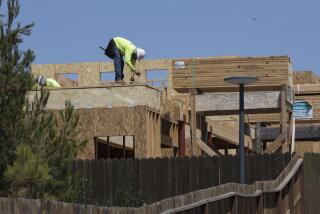Legality of Ventura Keys Tax Debated Before Judge : Lawsuit: Case focuses on levy imposed on residents, who are required to pay most of the costs needed to dredge their back-yard canals.
- Share via
Attorneys for the city and Ventura Keys residents squared off in Superior Court on Friday, arguing the legality of a special tax imposed to dredge local waterways.
Keys lawyers told visiting Judge Sidney P. Chapin that the City Council had no legal right to override the wishes of more than 84% of Keys residents opposed to the tax.
The city also failed to follow legal procedures when it formed the assessment district, which taxes each landowner nearly $2,000 a year to pay for cleaning out the canals winding through the upscale Ventura Keys neighborhood, Keys lawyers said.
But attorneys for the city argued that while several technical errors were made in forming the Porto Bello Assessment District, the tax nonetheless follows state guidelines.
Chapin, a Kern County judge, has presided over the case for the past several years, since Ventura County Superior Court judges dismissed themselves with potential conflicts of interest.
Chapin took the case under submission Friday and said he would issue a ruling within 30 days.
The lawsuit centers around taxes imposed on 302 Ventura Keys residents, who under the assessment district formed four years ago are required to pay the majority of costs needed to dredge their back-yard canals.
Silt and mud from city and county drainage systems routinely clog the waterways after heavy storms, requiring that the canals be dredged at least every seven years.
Keys residents claim the canals, like streets and sidewalks, are public property and maintaining them is the city’s responsibility.
But attorneys for the city contend that because the canals are used primarily by Keys property owners, many of whom dock sailboats behind their homes, the residents should pay the majority of the cost.
Gary B. Roach, one of three attorneys hired by the plaintiffs to fight the annual assessments, also told Chapin on Friday that the city failed to properly inform homeowners of its intent to establish the special district.
“For 15 months, the city and the city staff proceeded without notice and opportunity [for the public] to be heard,” said Roach, who also complained that an engineer’s report was not filed with the city clerk until after the district had been approved.
“Until [the report] is filed with the clerk, the people have no opportunity to go in and review this,” Roach said.
Keys’ lawyers also complained that an assessment district can only be established to pay for improvements and that routine dredgings amount to maintenance and not improvements.
What’s more, Roach said, one of the resolutions adopted by the City Council in 1991 was never signed by the city clerk, making the document invalid.
But Daniel S. Hentschke, a San Diego County attorney retained by the city, told Chapin that technicalities such as those cited by the plaintiffs’ attorneys do not make the district illegal.
The plaintiffs’ argument “boils down to throwing out the district because [the resolution] was inadvertently not signed by the city clerk,” Hentschke said. He called the oversight a “harmless error.”
Hentschke also cited a precedent that he said establishes the government’s right to tax homeowners when it can be shown that the maintenance primarily benefits a specific group, as opposed to the public at large.
“There can really be no serious doubt that the work in the Keys falls within [assessment district rules],” said Hentschke, who at one point Friday was reading off examples so rapidly that the court reporter asked him to slow down.
A vast majority of Ventura Keys residents--nearly 240--refused in April to accept terms of a settlement offer that would have lowered the annual tax to $813, with $64 annual increases.
Although the deal was negotiated between city and Keys officials, the committee representing the exclusive neighborhood declined to endorse the inch-thick settlement.
About 100 Keys residents have filed separate suits against the city, claiming their property values have declined as much as 25% because of the dredging tax.
Those lawsuits are on hold, but would be thrown out if the city wins the case heard Friday, City Atty. Peter D. Bulens said.
More to Read
Sign up for Essential California
The most important California stories and recommendations in your inbox every morning.
You may occasionally receive promotional content from the Los Angeles Times.













